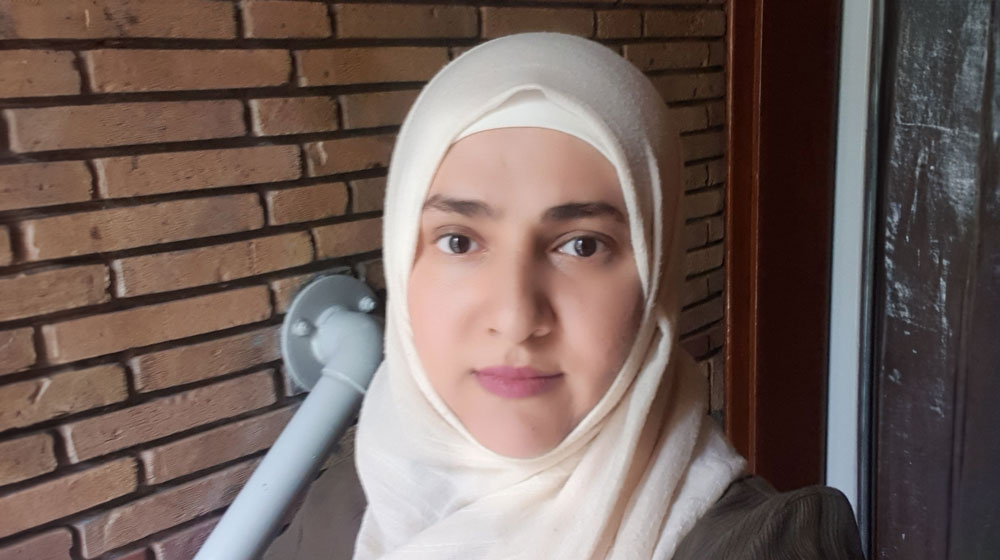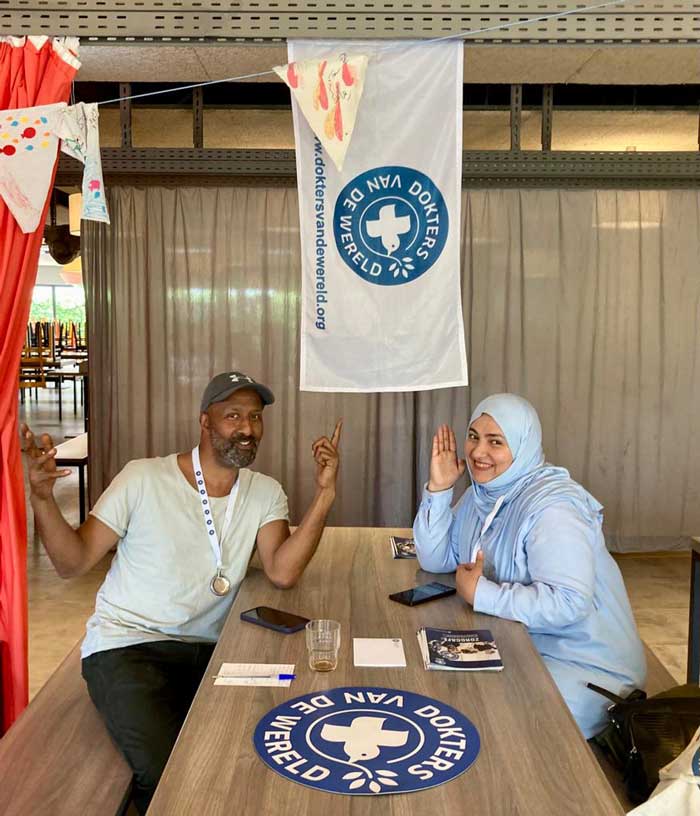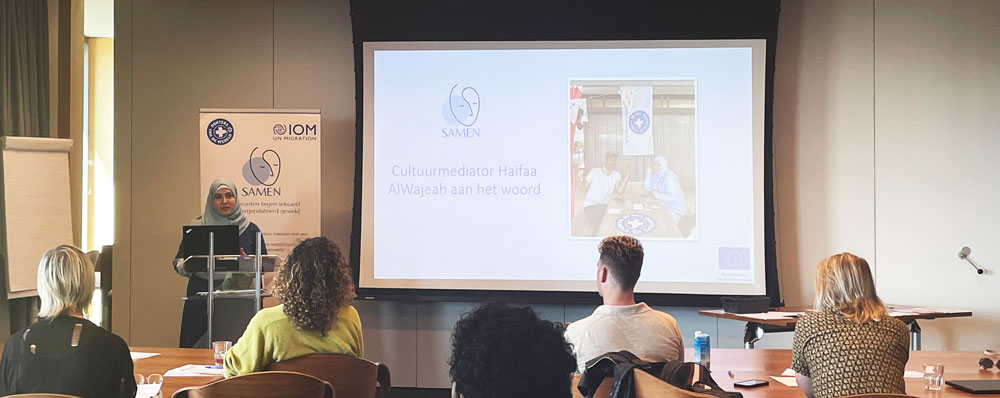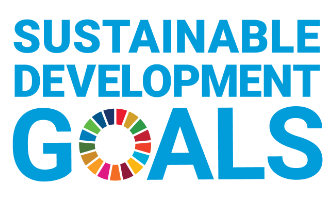Trigger warning: this text is about sexual and gender-based violence.
Talking about sexual and gender-based violence (SGBV) is never easy. Survivors of such traumatic experiences can feel alone in their pain, even though the violence they endured is never their fault. In a new country, far away from friends and family, finding the right support can be even more difficult. Healing becomes a more manageable journey with the support of someone who understands the survivor’s emotions and shares a common language.
This is where the Migrant Ambassadors of the SAMEN project come in. They have a migrant background themselves and strong ties to the healthcare sector, enabling them to support survivors of SGBV on their path towards a brighter future. Their position as cultural mediators allow them to bridge any cultural difference between survivors and healthcare providers in the Netherlands.
 Migrant Ambassador Haifaa
Migrant Ambassador HaifaaHaifaa is one of the Arabic-speaking Migrant Ambassadors in the SAMEN project, a collaborative effort between the International Organization for Migration and Dokters van de Wereld to combat SGBV. She is a medical doctor and a recognized expert in health policy and management with over twelve years of experience in programme management and humanitarian work. In Haifaa's own words: "My involvement with both international and local organizations in Yemen and the Netherlands has provided me with unique insights into the challenges faced by vulnerable communities. This experience has not only made me a trustworthy advocate but also an approachable ally in my interactions with people."
Being originally from Yemen and having migrated to the Netherlands, Haifaa understands what profound impact forced migration can have on someone's physical and mental well-being. She elaborates, "Because of our shared migrant background and cultural sensitivity, cultural mediators like me are more approachable and trustworthy. This position significantly enhances the effectiveness of our support. We grasp the intricacies of reaching out to migrants, offering them unwavering support, actively listening to their experiences, and, most importantly, gaining their trust." To illustrate the effectiveness of her position as a mediator between cultures, Haifaa reflects on a powerful case: "I remember a woman who had fled from Africa to Yemen, carrying the heavy weight of severe trauma, including sexual violence and an unexpected pregnancy. Our team dedicated ourselves wholeheartedly to her, offering a comprehensive support system. We offered psychological assistance, medical care, and legal guidance. To me, this case stands as a testament to the profound impact of our work, illustrating our commitment to providing holistic support to those facing dire circumstances."
 Migrant Ambassadors during an open consultation hour of Dokters van de Wereld.
Migrant Ambassadors during an open consultation hour of Dokters van de Wereld.The case highlighted by Haifaa illustrates a more significant problem of violence faced by people escaping conflict and war-torn societies. Research from 2015 shows that an estimated 61-80% of women and 25-56% of men who fled from their countries of origin have experienced sexual violence1. The numbers, constrained by limited data and obscured by societal stigma, likely underrepresent the number of actual incidents.
Amidst these destressing statistics and the far-reaching consequences of violence on a person's well-being, Migrant Ambassadors convey a message of hope and connection. Haifaa shares a powerful example: "A woman approached us, disclosing that she had become a victim of human trafficking and sexual violence. With the assistance of our dedicated partners, we were able to provide her with the necessary support throughout her journey toward recovery." Beyond individual support, Haifaa also raises awareness about sexual health. She initiated conversations about topics such as Sexually Transmitted Diseases (STDs) and gender-based violence. "During these discussions, we brought together participants from diverse cultural backgrounds, creating safe spaces for people to share their experiences openly", Haifaa elaborates.
Reflecting on her role in the SAMEN project, Haifaa concludes, “over the past months, SAMEN has undertaken several initiatives that truly embody the power of cooperation and empathy. Together, we are making profound changes in our communities for the better.”
 Haifaa presented her story during an event as part of the SAMEN project.
Haifaa presented her story during an event as part of the SAMEN project. 1Busch, J.R., Hansen, S.H. & Hougen, H.P, Geographical distribution of torture: An epidemiological study of torture reported by asylum applicants examined at the department of forensic medicine, University of Copenhagen, Torture Journal, 2015, p. 19
Listen to Haifaa's story
English
Français
العربية
دری
ትግርኛ ፊደል
Af-Soomali
Listen to Haifaa's story
English
Français
العربية
دری
ትግርኛ ፊደል
Af-Soomali
Read Haifaa's story in other languages:


Co-funded by the European Union. Views and opinions expressed are however those of the author(s) only and do not necessarily reflect those of the European Union or DG JUST. Neither the European Union nor the granting authority can be held responsible for them.



